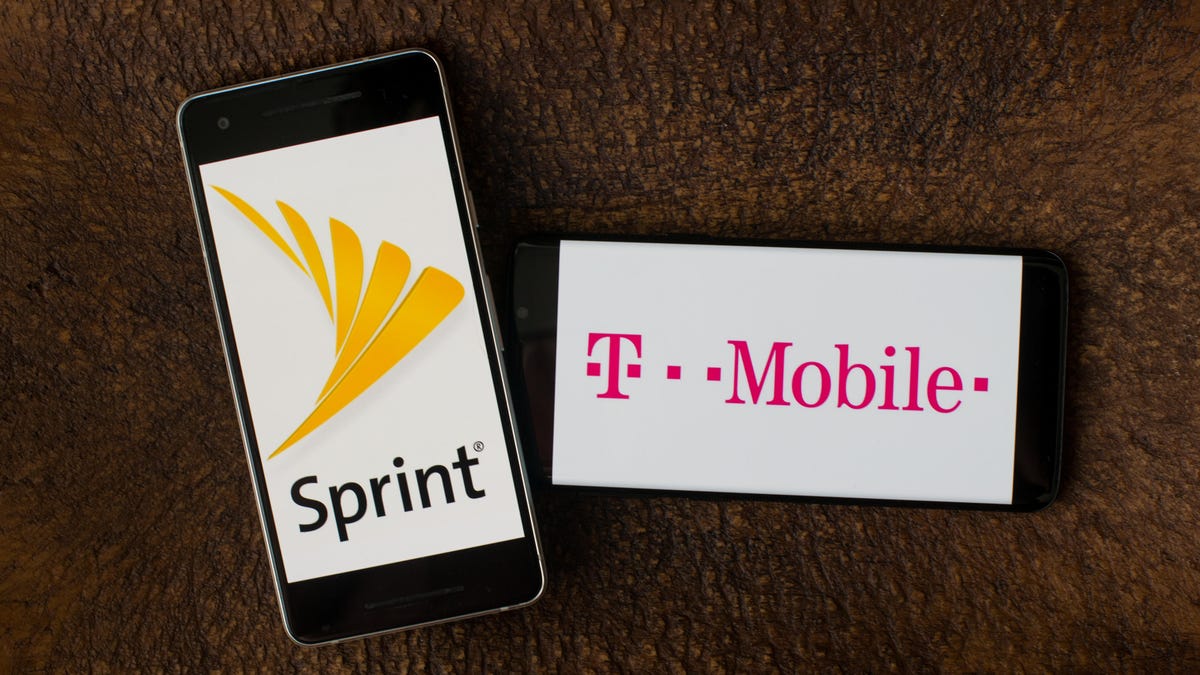T-Mobile, Sprint head to court to try and close out merger
The trial to determine the fate of the T-Mobile-Sprint merger has begun.

Spriint and T-Mobile are heading to court Monday to try to close their pending merger.
On a cold and rainy Monday morning in New York, T-Mobile and Sprint headed to court to try and have their merger approved. The hearing marked the first day of a trial between the wireless carrier and a number of state attorneys general, led by New York AG Letitia James and California AG Xavier Becerra.
Sprint Chief Marketing Officer Roger Solé was the first to testify after US Judge Victor Marrero announced that he would be skipping opening statements. The trial is set to run until Friday, Dec. 20, or Monday, Dec. 23, depending on the number of hours each side needs to present its case.
At issue is whether T-Mobile should be allowed to complete its $26.5 billion merger with Sprint. The deal was announced in 2018 and received approval from the Federal Communications Commission and Department of Justice earlier this year. The states represent the last hurdle preventing T-Mobile and Sprint from consummating their deal.
In Monday morning's hearing, the law firm representing the states pushed Solé on Sprint's ability to influence the wireless industry by introducing promotions that offered 50% off wireless rates from T-Mobile, Verizon and AT&T in 2015 and then with its Unlimited Freedom plan in 2016. The carriers' side countered that Sprint is still shedding customers even after trying those aggressive promotions, as Sprint has had a hard time shaking off a reputation of having a poor network.
Solé also explained that Sprint has a limited path to 5G. While the carrier has the lucrative midband spectrum that T-Mobile covets, it lacks holdings in the higher frequency millimeter-wave that would allow faster speeds and low-band spectrum that would allow it to cover a larger portion of the country.
T-Mobile has announced a host of promises around 5G and not raising prices to win FCC approval. It won the DOJ's blessing after a deal was brokered with Dish to have the satellite TV provider step in and buy assets from Sprint to become a new, fourth nationwide wireless carrier to replace Sprint.
While in most mergers, DOJ and FCC approval would be enough to close a deal, 14 attorneys general are opposed to the merger. Led by New York and California, the AGs filed a multistate lawsuit to block the deal in June, arguing that allowing the merger of the nation's current third- and fourth-largest wireless carriers would "deprive consumers of the benefits of competition and drive up prices for cellphone services."
The AGs have also questioned whether Dish can be trusted to become a true fourth carrier, citing how the company has no experience running a wireless company and has routinely failed to deploy the spectrum it has won at recent auctions.
"Dish is a struggling satellite TV firm with no experience running a mobile wireless business -- and no current mobile wireless business," California Deputy AG Paula Blizzard said in a remarks delivered this morning. "It will not be a new, robust wireless operator that can replace Sprint."
A number of executives from T-Mobile, Sprint and Dish are expected to appear in the coming days including T-Mobile CEO John Legere, President and Chief Operating Officer Mike Sievert and President of Technology Neville Ray. Also expected are Sprint Chairman Marcelo Claure, current Sprint CEO Michel Combes and Dish co-founder Charlie Ergen.
After T-Mobile unveiled a host of additional initiatives last month that it said it would offer if the merger was approved -- including providing free service to first-responders and free home internet to low-income households -- the company was able to sway a few states into supporting its cause, including Texas and Nevada.
T-Mobile has long argued that it needs Sprint's spectrum to build a truly robust 5G nationwide network. Sprint is the only US carrier to currently offer 5G on what is known as midband spectrum. This frequency that allows for faster data connections than the low-band 5G network T-Mobile turned on for 200 million people on Friday, but with significantly more range than the higher frequency millimeter-wave 5G currently favored by Verizon .
The carrier argues that by merging with Sprint it will be able to build out a network that utilizes all three flavors of 5G: low-band, midband and millimeter-wave.
Sprint, meanwhile, has continued to bleed out subscribers and funds, and while it has 5G in nine cities, it has not announced any additional expansion plans. The company's declining health has prompted some analysts to call for T-Mobile to renegotiate the price of its deal.
T-Mobile declined to comment on if it was renegotiating its price with Sprint. The carrier previously has said it now expects to close the deal in "early 2020" with CEO John Legere telling CNET in October that the company is "perfectly ready and prepared for" the trial.
"We know their issues and we have answers," Legere said. "And now it's just a matter of which package to put them in."

